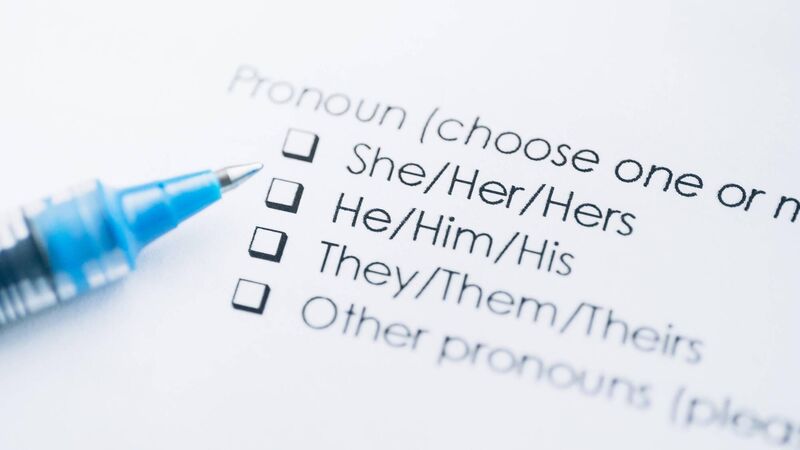Dear Dáithí: My teenager is using new pronouns — how can I be supportive?

Gender identity has changed massively in the course of a generation - so too must our understandings, says Dáithí Ó Sé
This world is new to us all, unchartered waters that sometimes can be very hard to understand, so we must navigate slowly and with care.
Direction is more important than speed here, because we are talking about the most important people of all in our lives, our children, be it our own or someone else’s.
As parents, when we don’t have the answers we feel inadequate, and this is where we have to educate ourselves; try to understand what is happening; and the most important thing of all, we must be there for our children.
I know a lot of people think that this is some kind of fad or young people trying to be different and will eventually go away, it won’t, and we need to deal with it.
The first thing you need to do is read up about what non-binary means, and then sit down with your child, asking them what it means for them to be non-binary, act like you don’t know anything about it.
Look for information, and look for details, and be truthful that you don’t 100% know the whole story, but that you want to be there for them and understand what is going on.
If you are feeling overwhelmed, can you imagine what your young person is going through?
I don’t like the word 'journey' but you both are going to have to 'journey' together on this one.
- you will have a very clear picture of what’s happening
- your child will not feel alone in this whole situation, which is so important
You’re worried about losing something; you won’t if you stay close like this. What you don’t want is your child doing a solo run.
Ask your kid if their friends know about this, and if any other friends are feeling the same way - and if so, contact the parents and chat about it on the QT.
After you chat to your young person, I would call the school principal and tell them what’s happening,
It’s so important to keep them in the loop; also, they will have good advice on what to do too, and I’m sure they have seen this before, and might even have training on how to approach all of this.
Now, I would say that there has to be patience on both sides here; you, in the way you want to understand this; and also from your child.
For example, if you get a pronoun wrong, and call them 'her' by accident, she’s going to have to get over it.
For me, it’s all about intent and if you didn’t mean it, that’s just life. It’s going to happen in real life ,where someone says it to them to piss them off, and they will have to deal with that too.
Older generations are not used of this, and it will take time to understand what’s going on
Also, we are not used of speaking like this, it sounds like we are making a mistake, so that will take time and patience.
Another worry you have is that you are letting them down; well, you’re not.
I think one of the biggest worries we have as parents is, we want our own to be part of the gang, be it U-10 hurling and football, or having a son or daughter who’s gay, your situation is the same - you just want them to be treated the same as everyone else, and get on with life.
I can see too how this might be hard to explain to an older generation, but y'know what? They might surprise you.
Go and have the chat with your own parents, but only after you yourself are well-briefed and know what’s going on.
Tell them the whole story; there isn’t much they haven’t seen or heard down through the years, and because they are a step further away from this than you, they might even be part of the solution in this for you.
You might get a sudden intake of breath at first from some of them, they’ll get over it - but the more they understand the better.
They are not just a statistic in a survey, or a headline in a newspaper.
The other problem we have nowadays is that everyone has an opinion, and not afraid to voice it, so I can see why this would worry you.
At this point it’s important that you are aware of what’s happening with your child, and be there for them with every new step.
You are doing great in these uncharted waters; and when you’re ready, let the rest know what’s happening, do it at your own pace, and if they have any preconceptions, challenge them on it - and set them straight!







